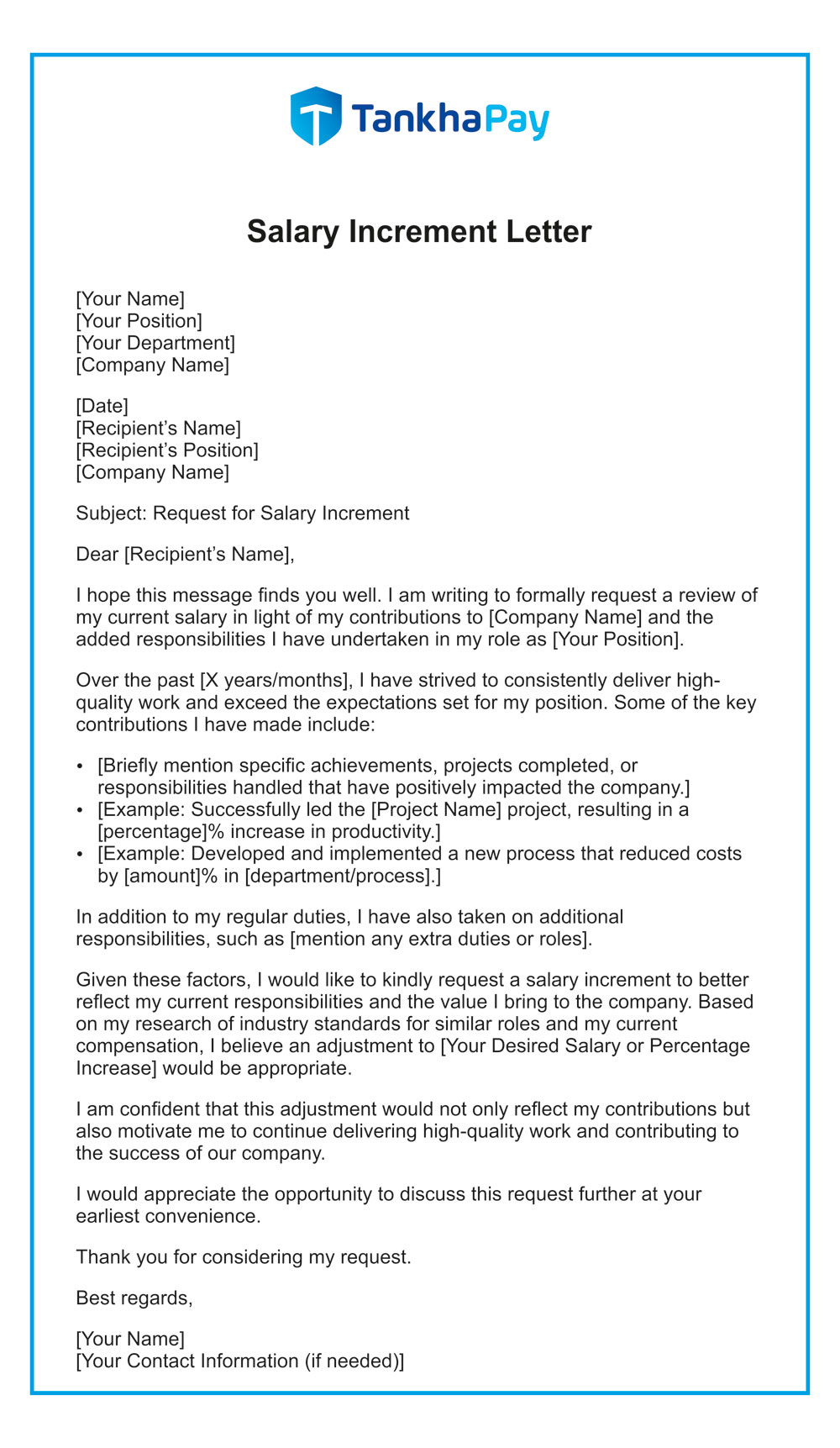Official communications of employers to employees about salary increases are referred to as salary increment letters. They are usually written once a worker is eligible for an increase in salary based on performance, tenure, or company policy. This report will examine the purpose, structure, and tips for writing a good salary increment letter.
What is a Salary Increment Letter?
It is a formal letter issued by an employer to an employee stating that the employee will receive a raise. An increment can be due to several factors, such as a performance review, accomplishment of certain milestones, or wage changes according to inflation and industry standards. It's one of the most crucial ways of acknowledging the efforts put in by an employee.
Though a general practice is that salary increases are provided annually or after some fixed period, the increments are sometimes issued on an ad-hoc basis. However, no matter how frequently the salary increase is available, this letter will keep the communication transparent and clear.
Purpose of Salary Increment Letter
The primary purpose of a salary increment letter is to make an official declaration about changing an employee's salary. In addition to the salary hike, this letter also serves multiple purposes:
Building Trust
It is always explicit and written communication about employers' salary changes. Thus, it makes the workplace transparent, decreases the chances of misunderstandings, and helps build trust.
Legal Documentation
It is a legal document of pay rise. In case of any misunderstanding between the employee and the employer, it will be of great help for future reference.
Professionalism
The process will be handled professionally, and organisational standards will be maintained if the raise is offered via a formal letter rather than a verbal agreement.
When is a Salary Increment Letter Issued?
A salary increment letter can be issued in a variety of situations:
Annual or Annual Performance Appraisals
Most organisations have annual performance appraisals to evaluate employee performance. A salary raise is usually a result of such an appraisal, primarily if the employee has performed up to or beyond expectations.
Milestones or Achievements
Employees may get a salary raise because they have achieved specific goals, targets, or milestones.
Promotion
When an employee is promoted to a new role or level in the organisation, a salary increment typically goes with the new position since it comes with greater responsibility and expectations.
Company-Wide Salary Increments
Some companies increase all staff members' salaries to stay in step with market trends or the general performance of the whole company.
Essential Requirements of an Increment Salary Letter
A letter requesting a salary increment should be well-articulated, clear, and formal. A successful letter for salary increment would include the following:
Date and Address
The letter should start with the date on which it was issued. It should also contain the recipient's name, job title, department, and company address.
Salutation
The employee should be addressed by name with a respectful salutation such as "Dear Priya"
Subject Line
The subject line should be direct and clear. It could read "Salary Increment Notification" or "Notification of Salary Increase."
Opening Paragraph
The first paragraph should thus begin with acknowledging the hard work of the employee and his value to the company. This then gives a positive tone about the recognition by the company to him.
The Details of the Increment
The body of the letter should detail the exact nature of the salary increase. This includes the current salary, new salary, and percentage change. If applicable, the letter might also include a breakdown of the factors contributing to the raise, such as performance, company performance, or market conditions.
Effective Date
The letter should indicate the date that the new salary will be effective to avoid confusion and inform the employee when they can expect the raise to be transferred into their paycheck.
Closing
The closing should be professional and respectful, like "Sincerely" or "Best regards." Then, the letter should be signed by the proper authority, which would most likely be the employee's supervisor or manager.
Sample Salary Increment Letter
Company Name: Zenith Technologies
Company Address: 123 Innovation Street
City, State, ZIP Code: Bangalore, Karnataka, 560001
Date: 27 November 2024
Employee Name: Ananya Sharma
Job Title, Employee: Senior Software Developer
Department Name: Software Development
Company Name: Zenith Technologies
Company Address: 123 Innovation Street
Subject: Salary Increment Notice
Dear Ananya Sharma,
I am glad to inform you that after reviewing your performance over the last year, We are pleased to offer you a wage increase to acknowledge your hard work and devotion. Your contributions to the Software Development department have not gone unnoticed, and we are pleased with your progress.
From 1 December 2024, your new salary will be ₹1,200,000 per annum with a percentage increase from the old salary of ₹1,000,000 per annum. The decision has been taken to recognise your performance and dedication to excellence in this position.
We are excited to see your growth with Zenith Technologies, and we encourage you to keep it up. If you have questions on this change, please call Mr. Rohit Verma in HR.
Thank you for working hard towards the success of our organisation. We look forward to your continued accomplishments and contributions.
Sincerely,
Priya Malhotra
Head of Software Development
Zenith Technologies
How to Write a Salary Increment Letter
Be Clear and Specific
Ensure all figures and details are correct. Avoid ambiguity, especially regarding salary, increment percentage, and effective date.
Maintain the Tone Professional and Optimistic
Regardless of whether the increase offered is lower than the employee has expected or following a challenging period, the effort to present it should be made with the worker's positive contributions in mind, focusing on a positive motivating tone.
Timing
Increases should best be communicated during favourable terms between the company and the employee. Present it during an annual review or right after a successful project.
Personalise It
Maintaining professionalism is essential, but the letter can be personalised with specific accomplishments to show appreciation and recognition to the employee.
Conclusion
A salary increment letter goes beyond being just an easy paper to build up, bring out the confidence to uphold, and maintain professionalism by employing their staff members in a working relationship. Companies recognise, compensate, and reward employees' efforts. That recognition is a positive work environment fostering loyalty and productivity. Whether it is an annual increment or because of excellent performance, the salary increment letter is a very important communication that all firms need to treat with great care and attention.

















